How RisApp Used Dezoko Solutions to Streamline Multi-Channel Recruitment Workflows
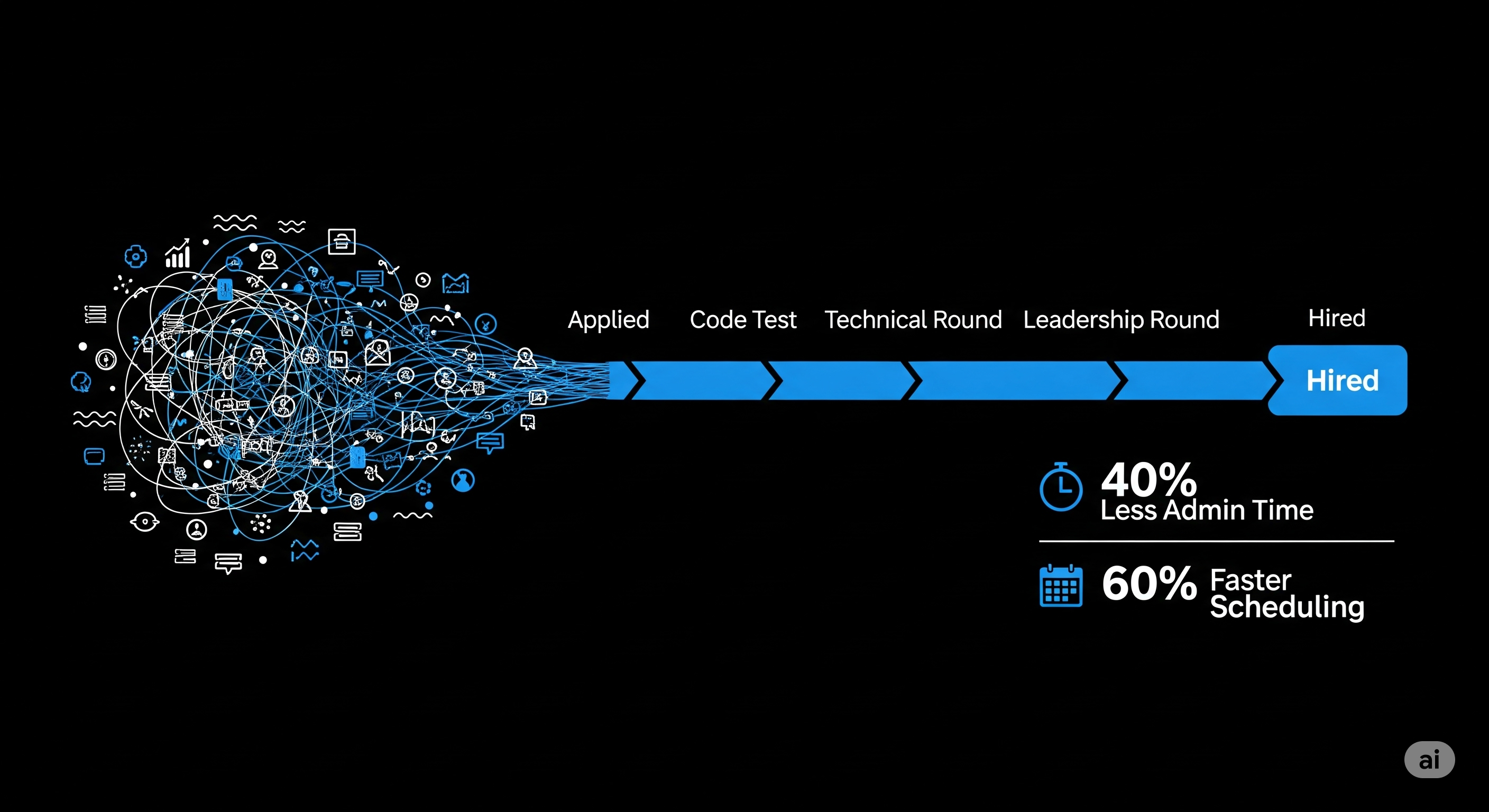
Table of Contents
Client: RisApp
Problem
- Scattered candidate data across sourcing websites
- No unified system to track candidate progress
- Manual coordination with external code testing platforms
- Endless back-and-forth emails for scheduling interviews
- Limited visibility into bottlenecks or drop-offs
- Recruiters were spending more time managing operations than evaluating talent.
Solution Exploration
- Hiring additional recruitment coordinators to manage operations
- Building a fully customized ATS with native integrations
- Embedding AI-driven workflow automation into the existing setup
UI Design

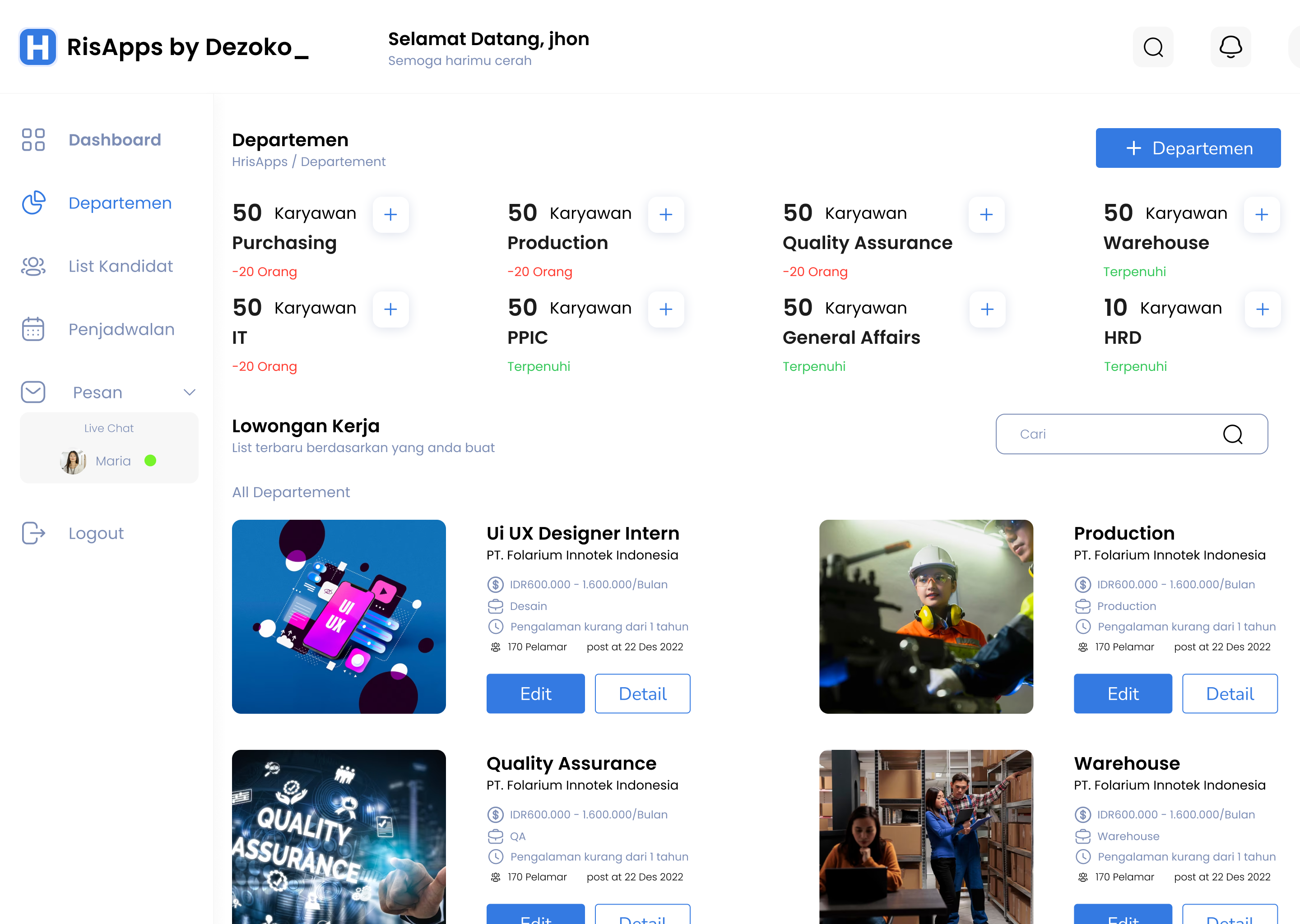
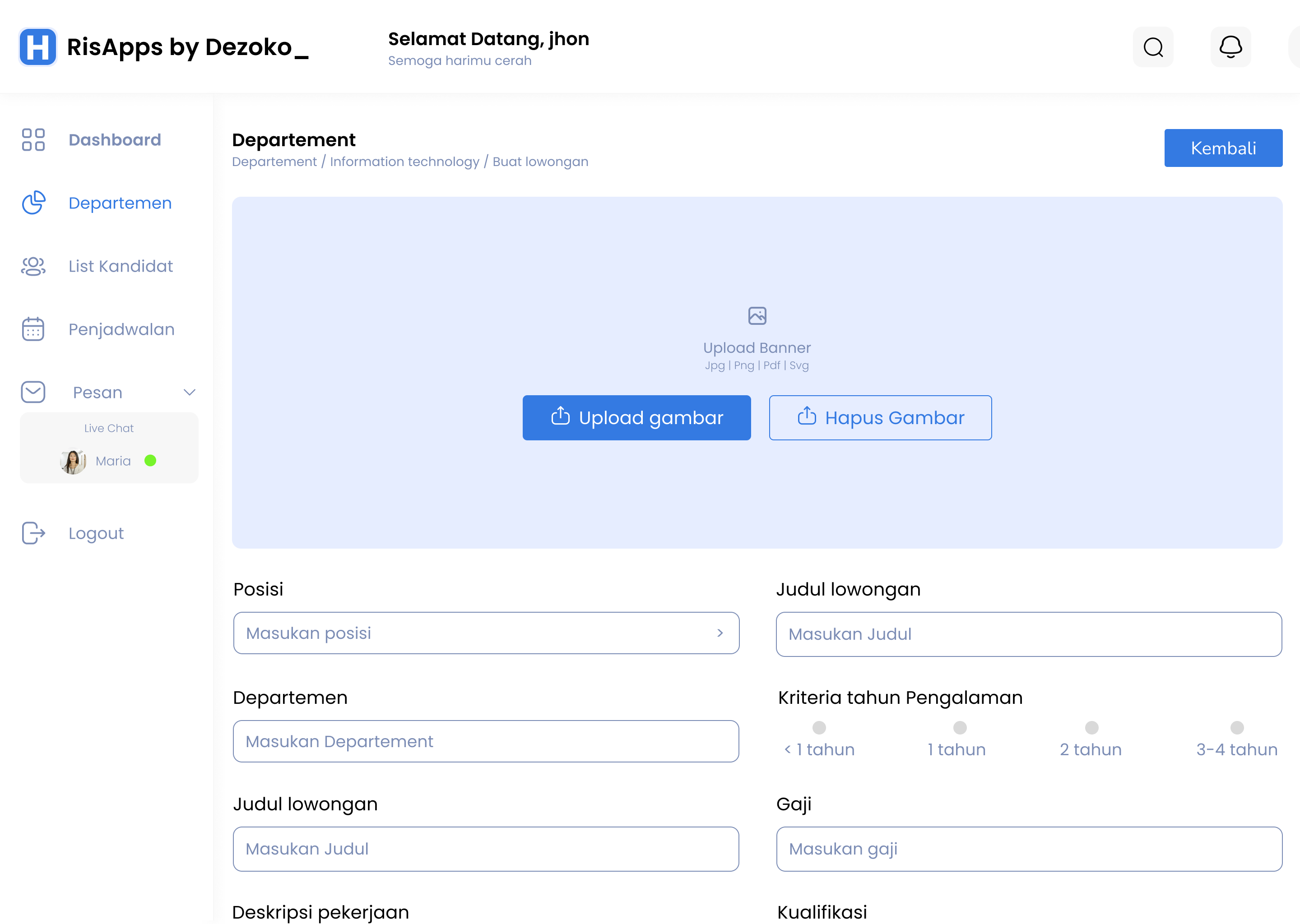
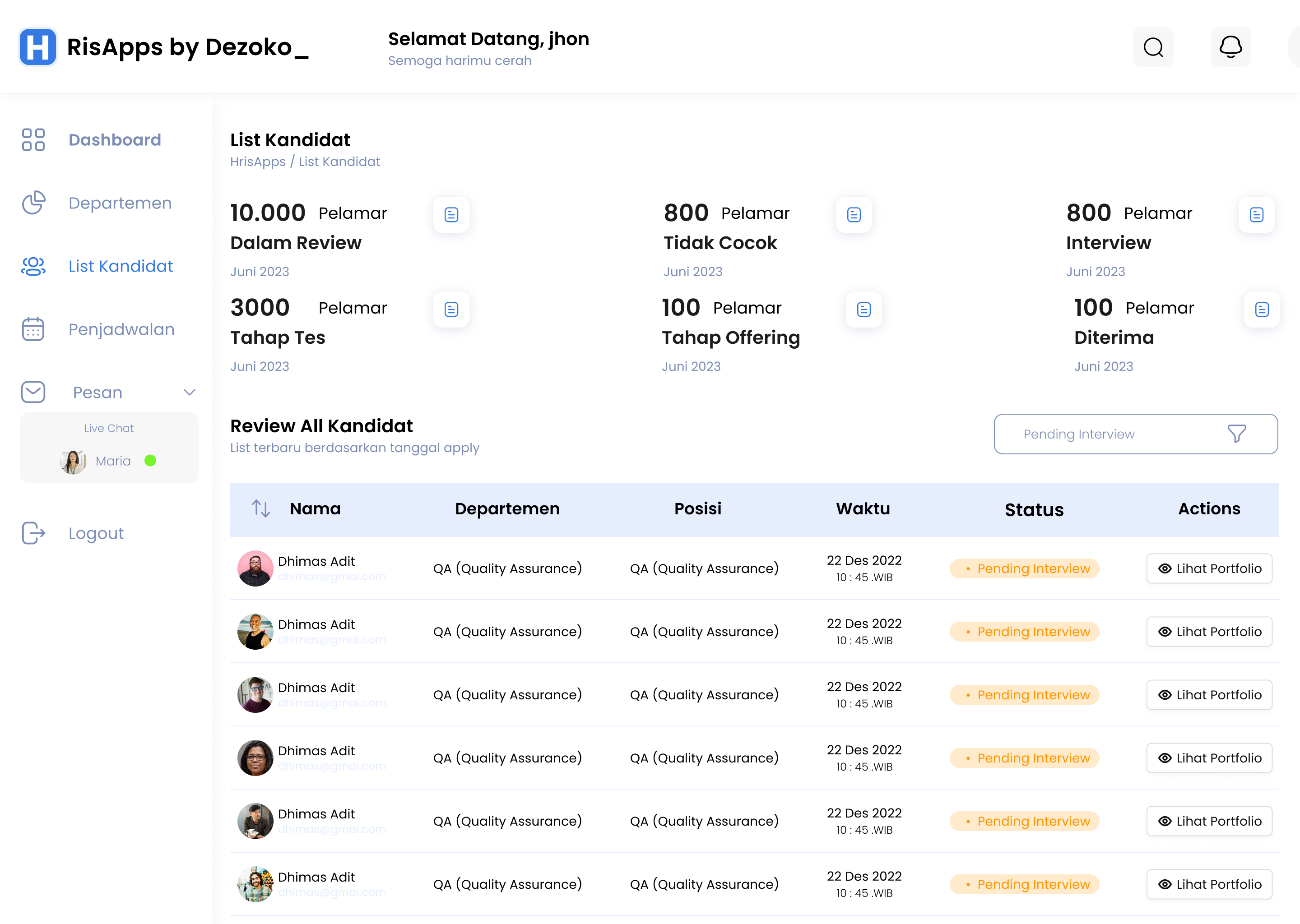

How Dezoko Helped
- Unified candidate intake: Applications from all platforms were automatically collected and merged into a single pipeline.
- Smart stage tracking: The AI classified each candidate into pipeline stages like Applied, Code Test, Technical Round, Leadership Round, and Hired.
- Seamless coordination:
- At the Code Test stage, the system sent out test links via integrated vendors.
- At the Technical Round stage, candidates received personalized emails and automated calendar booking links.
- During the Leadership Round, scheduling links were sent based on leadership availability without any manual coordination.
- Once hired, candidate data was pushed to internal systems or CRMs automatically.
Real-Time Analytics and Control
- Number of candidates per stage
- Source-wise conversion and quality
- Time spent at each step of the pipeline
- Interview delays or drop-offs
- Recruiter-wise productivity metrics
Key Outcomes
- All sourcing platforms now feed into one central workflow
- Recruiters spend 40 percent less time on administrative tasks
- Candidate response and scheduling time improved by 60 percent
- Real-time insights replaced manual reports and guesswork
- Candidate experience improved with faster, consistent communication
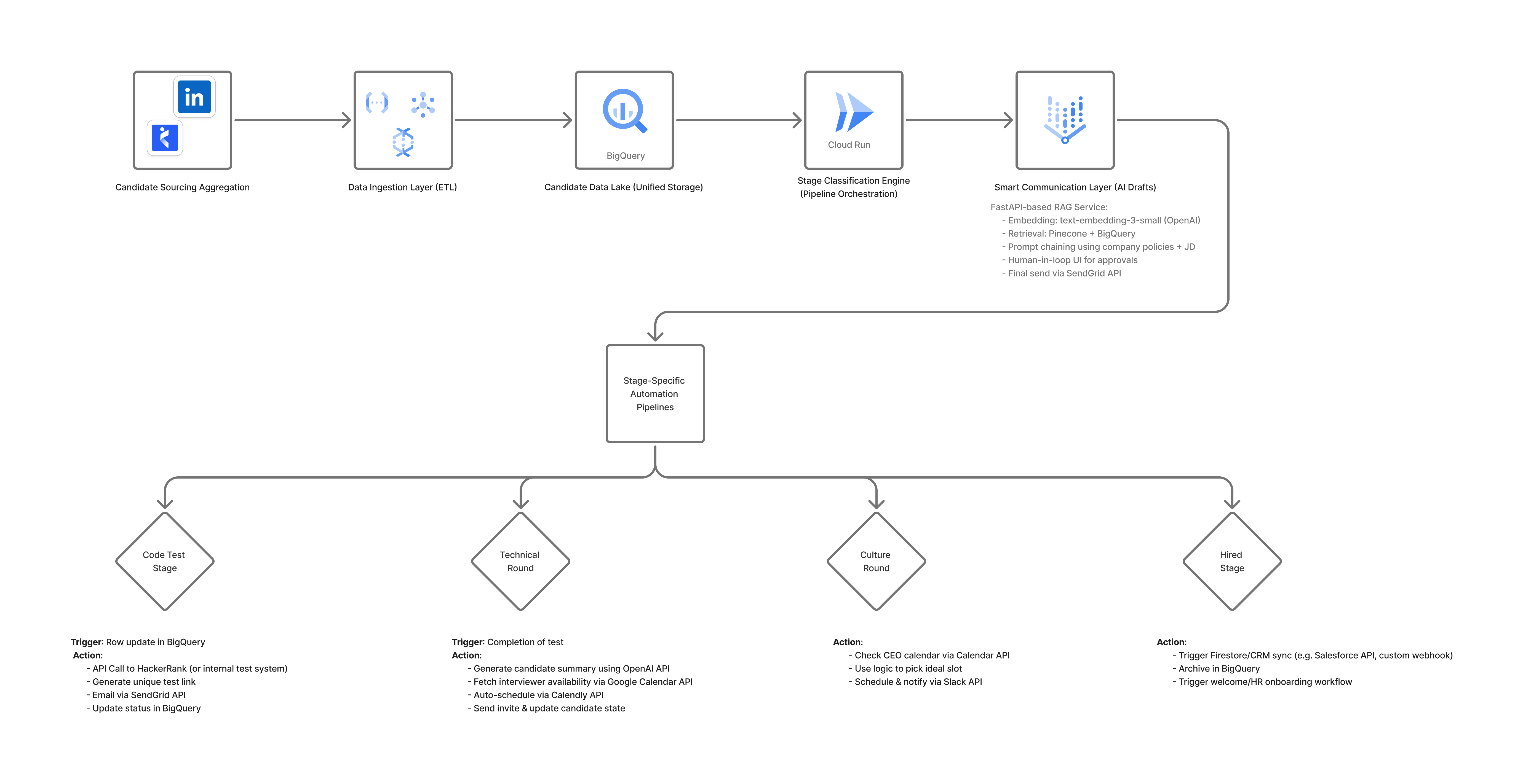
Tech Stack
- We implemented AI-driven pipeline orchestration through Dezoko using the following technologies:
BigQuery for Centralized Candidate Repository
- We built a data lake using BigQuery as the backbone.
- Every lead, regardless of the source, was cleaned and stored in a unified schema.
- Regular batch jobs processed incoming data from CSVs, email parsers, or APIs into BigQuery.
- Scheduled queries tracked candidate movement between stages.
- BigQuery was a reliable, scalable store and handled analytical queries well.
AI-Powered Stage Intelligence (RAG + Prompt Chaining)
- We implemented Retrieval-Augmented Generation (RAG) for certain automations:
- Use Case: Candidate Reply Drafting
- We used OpenAI with a custom vector store for context on JD, company policy, and FAQs.
- A FastAPI service handled the RAG pipeline:
- Embedding generation via text-embedding-3-small
- Context pulled from BigQuery + Notion docs
- Final prompt fed into GPT to generate personalized email replies.
- Challenge: For niche tech roles, responses sometimes missed the tone. We added a manual approval checkpoint.
Automated Calendar Scheduling Pipelines
- Code test stage triggered an API call to HackerRank or internal test system.
- On technical round movement, the pipeline auto-generated:
- Email with candidate summary
- Calendly link with interviewer availability
- Booking confirmation updated the candidate status in BigQuery and notified recruiters via Slack.
- These workflows reduced scheduling time by 60%.
CRM & Dashboard Integration
- All interactions were logged to BigQuery and surfaced in Looker Studio dashboards.
- Dashboards showed:
- Stage-wise drop-off rates
- Time spent at each stage
- Top sources by hire ratio
- Recruiter productivity
Pipelines That Did Not Work Well (and Why)
- Resume Screening via GPT
- Initial pipeline parsed resumes and used GPT-4 to generate match scores against JD.
- Accuracy was poor for non-standard resumes. Many false positives.
- Fix: We replaced it with rule-based screening + human shortlist + GPT for summary.
- End-to-End Auto-reply without Context
- Tried auto-replying to every inquiry using GPT with generic prompts.
- Lacked personalization. Backfired in some cases.
- Fix: Switched to semi-automated replies with pre-filled drafts and human editing.
Pipelines That Performed Well
- Code test automation
- Interview scheduling with Slack/Calendar integration
- Candidate pipeline reporting (Looker Studio + BigQuery)
- RAG-based reply generation with custom context
Tech Stack Summary
- AI Model: OpenAI
- Embedding Model: text-embedding-3-small
- Retrieval Layer: Pinecone + BigQuery
- Backend: FastAPI, Flask, Node.js workers
- Data Store: Google BigQuery
- Scheduler: Cloud Functions + Pub/Sub
- Dashboard: Looker Studio
- Code Test Integration: HackerRank API
- Calendar: Google Calendar API, Calendly
Outcomes with Technical Impact
- Reduced average hiring time by 6 days
- 40% decrease in manual effort
- Real-time reporting improved leadership visibility
- Human-in-the-loop ensured high-quality responses
- Scalable BigQuery backend enabled performance and cost efficiency
Aarav Mehta
Head of Talent at RisApp
Before Dezoko, our hiring process felt chaotic. We were constantly juggling emails, spreadsheets, and portals. With Dezoko's automation, our system feels organized, responsive, and intelligent. The team now focuses on meaningful hiring conversations while the repetitive work is handled automatically.